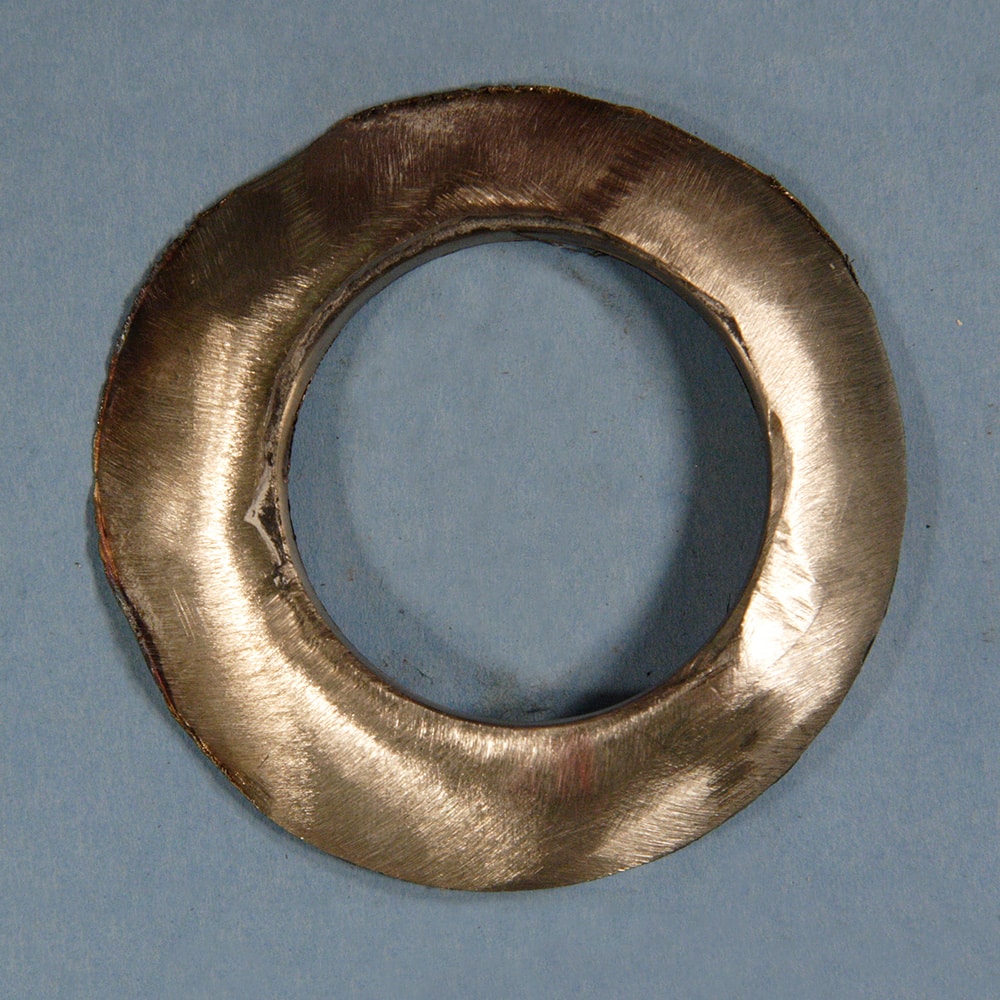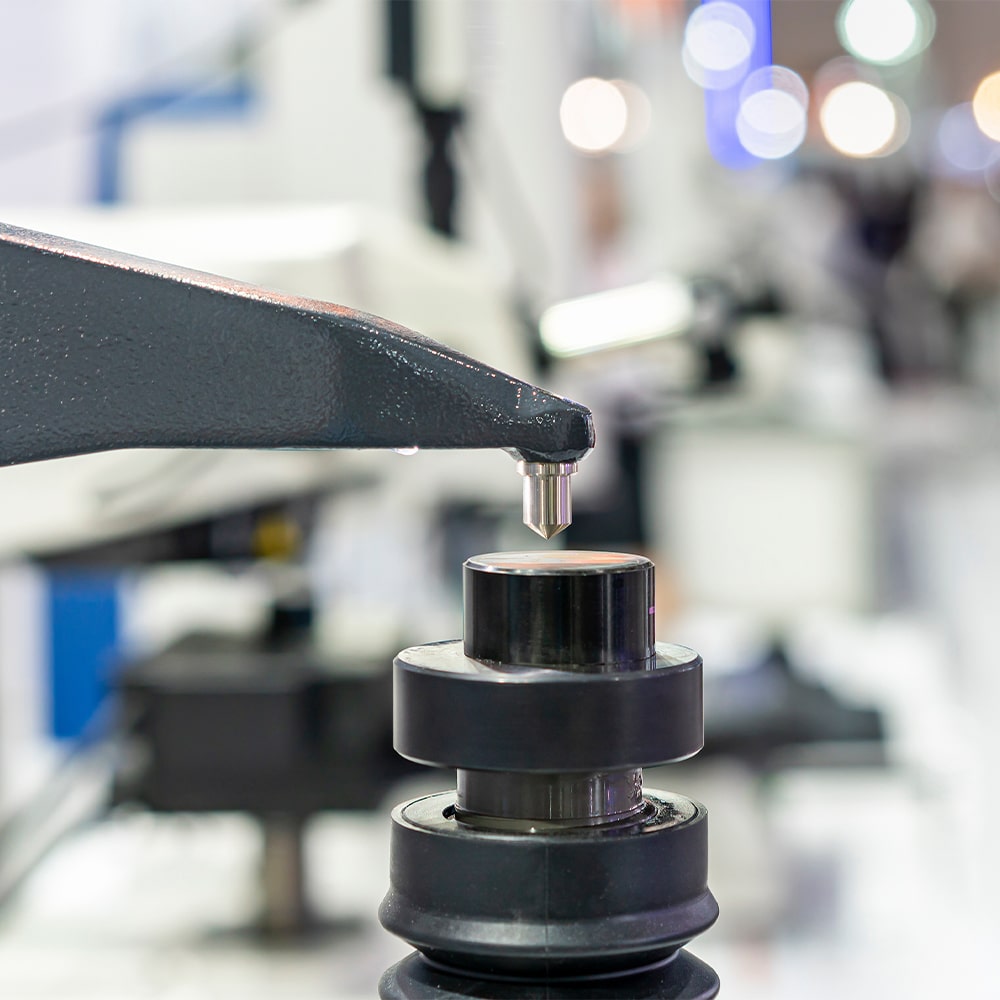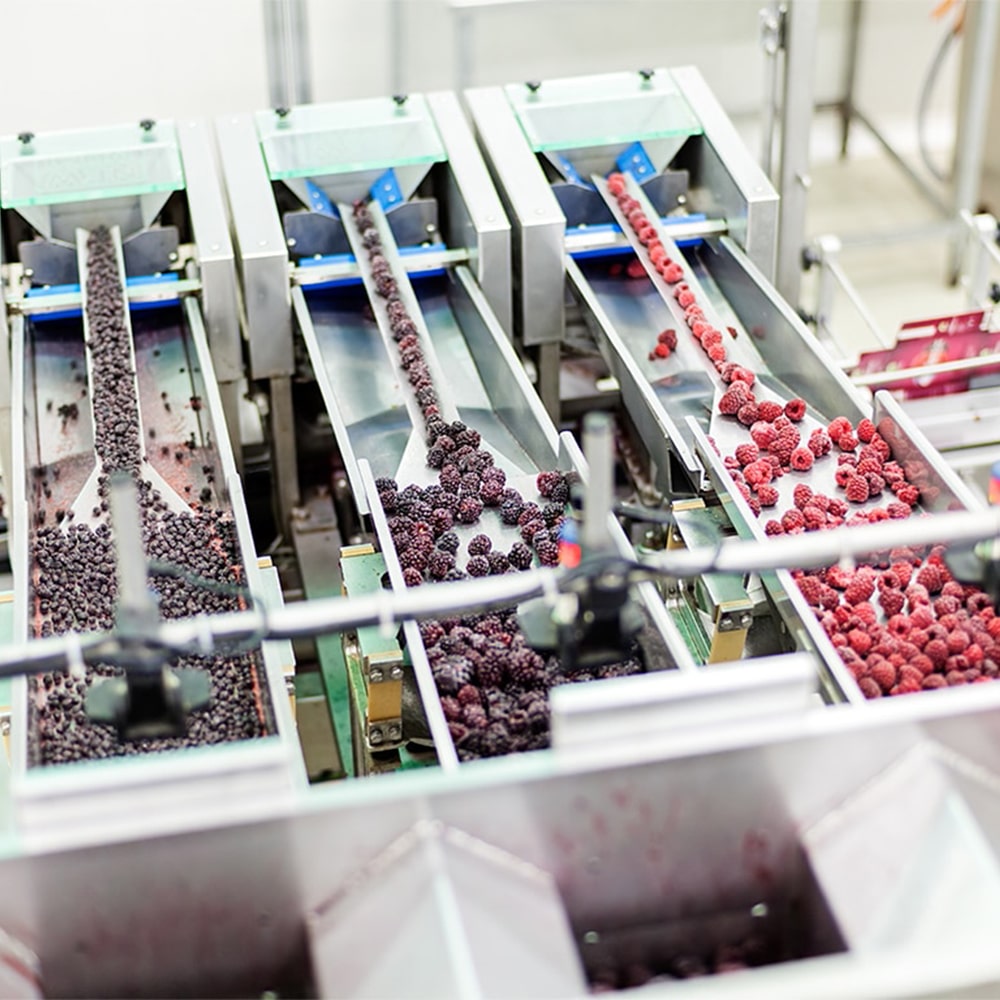Armoloy Specifications
What is ASTM B578?
ASTM B578 is a test method for measuring the microhardness of electroplated metallic coatings. It is commonly used as a supporting standard within larger plating specifications, such as AMS 2404 or MIL-C-26074, that include hardness testing requirements.
Using the Knoop hardness method, a diamond-shaped indenter presses into the coating surface under specific loads (0.245 N or 0.981 N), and the resulting indentation is measured to calculate hardness as a Knoop Hardness Number (HK).
This method ensures coatings meet wear resistance and durability requirements. Hard coatings (e.g., nickel, cobalt) require a minimum thickness of 25 µm, while soft coatings (e.g., gold, copper) need at least 38 µm for reliable testing.
ASTM B578 supports industries like aerospace and automotive by standardizing hardness testing for electroplated coatings, aiding in quality control, material selection, and compliance with industry specifications.

The Role of ASTM B578 in Measuring the Microhardness of Electroplated Coatings
ASTM B578 ensures electroplated coatings meet durability and performance standards by:
- Standardizing Hardness Testing: Provides consistent guidelines for Knoop hardness testing, ensuring consistent results.
- Guiding Material Selection: Helps manufacturers choose the best materials for high-performance applications.
- Quality Assurance: Defines test loads, thickness requirements, and reliability benchmarks.
- Driving Industry Compliance: Aligns with aerospace, automotive, and manufacturing standards.
The ASTM B578 standard offers industries a practical framework for evaluating coatings’ hardness and performance, driving smarter material design and applications in real-world environments.

ASTM B578 Testing Methodology & Results
ASTM B578 outlines a precise method for measuring the microhardness of electroplated coatings using the Knoop hardness test.
- Specimen Preparation: Coated samples are cleaned and cross-sectioned as needed to ensure accurate measurements.
- Thickness Requirements: Hard coatings require a minimum thickness of 25 µm, while soft coatings need at least 38 µm to prevent substrate interference.
- Testing Process
- Knoop Indenter: A diamond-shaped indenter applies controlled loads of 0.245 N (25 gf) for soft coatings or 0.981 N (100 gf) for hard coatings.
- The indentation length is measured under a microscope to calculate the Knoop Hardness Number (HK).
- Data Reporting: Measurements include load conditions, indentation size, and hardness values.
- Quality Assurance: Inspectors perform visual and uniformity checks to confirm consistency.
These standardized tests provide key insights into coating durability, supporting quality control, and performance optimization across industries.

Industries that Use ASTM B578
ASTM B578 is used across industries that require durable, high-performance coatings, including:
- Aerospace: Validates coatings on landing gear and engine components for extreme conditions.
- Automotive: Tests engine and transmission coatings to enhance wear resistance.
- Food Processing: Confirms coatings on food-grade machinery meet safety and durability standards.
- Injection Molding: Evaluates mold and tooling coatings for high-volume production.
- Medical Devices: Verifies that surgical instruments and implants withstand rigorous use.

Benefits of Working with an ASTM B578 Provider
Accurate hardness testing
Providers deliver precise microhardness tests to confirm coatings meet the performance needed for each application
Quality control support
Providers help you monitor coating performance over time with reliable testing methods
Application-specific guidance
A knowledgeable provider can help interpret hardness data to match the right coating to your needs
Performance optimization
Providers can spot trends in test results and recommend adjustments to improve coating consistency
Regulatory compliance
An ASTM B578-capable provider helps your operation meet industry specs and customer requirements
Consistent testing across batches
Working with the same provider ensures repeatable testing conditions for better tracking over time
Technical support when you need it
Experienced providers can answer questions, troubleshoot issues, and assist with audits or documentation
Customer confidence
Reliable testing builds trust in coated products’ durability and longevity

Specifications at Armoloy
Armoloy offers plating solutions that meet ASTM B578 to support both regulatory compliance and individual project needs. Explore the common specifications and accreditations we work with and connect with our team to find the right solution for your application.
Disclaimer
The information provided on this page, including any descriptions, interpretations, or summaries related to ASTM B578, is offered solely by The Armoloy Corporation for general informational purposes. This content reflects Armoloy’s internal understanding and practical application of ASTM B578 within its own processes and does not constitute official or authorized guidance from ASTM International.
ASTM B578 is a proprietary standard developed and owned by ASTM International. Armoloy makes no claim to ownership of this specification and does not reproduce, quote, or distribute any protected content from the original document. References to ASTM B578 are made in accordance with fair use principles and are intended to illustrate Armoloy’s alignment with widely recognized microhardness testing standards.
This content is not intended to substitute for the official specification, which should be obtained directly from ASTM International. Readers are strongly encouraged to consult the original standard and qualified professionals for definitive technical or compliance information
The Armoloy Corporation makes no warranties, express or implied, regarding the accuracy, completeness, or applicability of this content and disclaims all liability for any reliance placed upon it. This disclaimer is subject to change without notice and does not create any contractual relationship or obligation.
